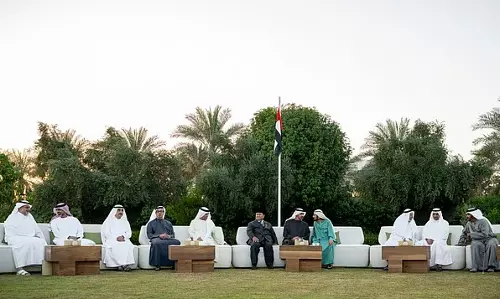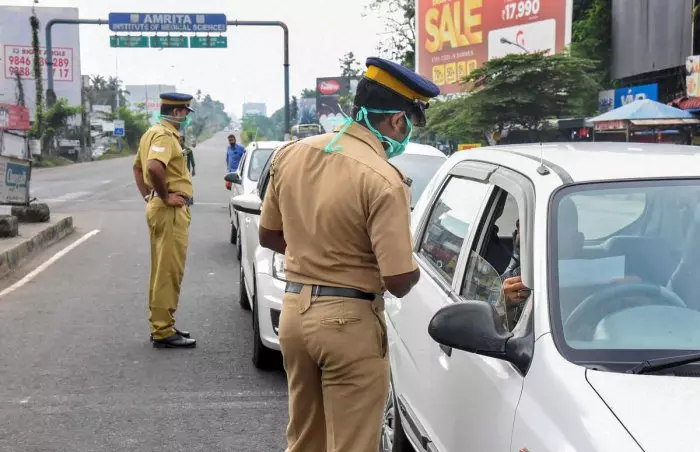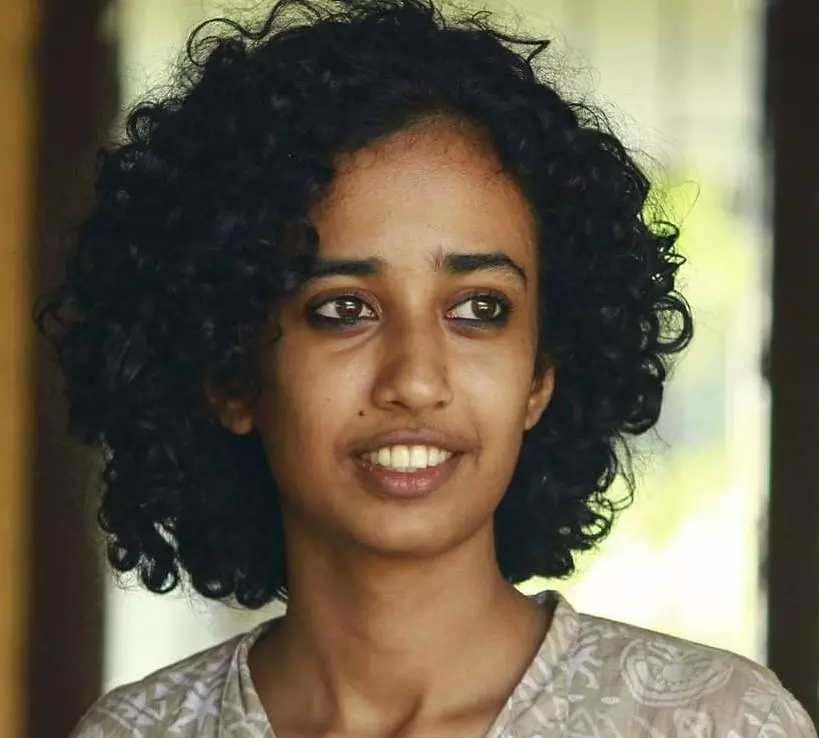
Do Police violate Human Rights in guise of maintaining COVID rules?
text_fieldsRepresentational.
In 2020 August, the Chief Minister of Kerala, Pinarayi Vijayan who heads the Home Ministry, announced that the police will enforce the COVID containment rules including that of quarantine norms. The force was assigned duties to impose strict civic rules and social behaviour codes, designed to check the further spread of COVID.
A circular issued to the lower rank officials by the police chief says that police will play an important role in bringing down the number of cases in the entire state. Responsibility of ensuring people quarantined had been adhering with the rules, contact tracing and marking to monitor containment zones also came under police force. Led by Sub Inspector, a team of officers in each police station was assigned for this purpose.
Along with claims of Kerala police being successful on their foot against the virus, a high number of cases of intimidation and breaching human rights by policing had also been reported in the last year.
In the wake of the COVID's second wave emergence, with the policing like monitoring quarantine and contact tracing in the early phase to triple lockdown patrolling and close examination of travellers, people of Kerala have been facing a 'new normal', a type of police state.
In the name of 'common good and collective sacrifice', the police excesses have been a matter of exhaustion for common people since 'virus is biological and police are structural.' The incidents of people, who got out buying necessary items and seeking basic needs including medical care, have been caught on camera being stopped, abused, and often beaten. While exerting their power on the public, the police officials themselves violate the very COVID protocol they are entitled to maintain.
The scenes of these abuses circulated on social media raise some serious questions. Has the police system been permitted to breach human rights and disgrace his or her dignity? How far effective the policing in keeping the public in check and controlling their emotions who live under the fear of a virus? Are our police capable to respond people's emotional turmoil while on their way to meet the necessities?
Pramod Puzhankara, the lawyer at the Supreme Court, thinks that the public during a situation like the pandemic cannot be monitored by exerting forces. "A pandemic is not merely a disease. It reshapes the living sensibility of society, during which all the concerns about life are sidelined except the concern about one's body and the virus, concern about getting vaccinated. The virus is an external thing that distanced humans, isolated each other, and deprived them of touch. What role police could play in such a situation and are they capable to deal with such a medical emergency? Why don't the health professionals in this country have a walkie-talkie when the police carry it?" Adv Pramod asks.
"The problem is not a human being or their movement. The virus is the problem, which has no connection with the power structures of society. Anyone can get infected, both the police and us. The law enforcement system is rooted in colonial history. The police system does not have any remedial measures. Indian law enforcement and judicial system are functioning in the worst conditions, look at the crowded jails and custodial killings" he adds.
Secondly, the police onslaught on people's dignity, a human rights violation, in the guise of preventing the pandemic spread has been continuing amid the mounting anxieties. Is there any end to these abuses in the name of policing that will leave the public, who are already in a state of panic, feel emotionally attacked?
During the triple lockdown in Malappuram district in May, several incidents of police atrocity on citizens were reported. A journalist who was out to buy essentials in the morning shared the ordeal they had to go through in the hands of police, on condition of anonymity.
"Soon after asking me to produce my ration card, they encountered me. I told them my house is a bit far. I am a journalist and I've been here at my workplace. Before I could explain and produce my valid press ID which was inside my two-wheelers, they took the key off my two-wheeler and asked me to produce a COVID negative certificate to get back my vehicle. My colleague reached the place and had a word with the police. I went to a nearby COVID testing centre. I had to join a crowd of around 150 to get myself a Rapid Antigen Test. It was a government facility, so I had to wait for a long time. I was in fear that what if I get infected from that crowd? I later went to a private hospital and got my test done paying 300 rupees, it was negative. It was too risky to get any vehicle to the police station. Finally, when I reached it, the SI asked me to wait for the Circle Inspector to come. But as I spoke on my side, they had no option other than to leave me with the vehicle. I had all these facilities of access to a colleague, money to get the COVID test done, and comparative good health. What if it was a person who has none of these?" the journalist asks.
Adv Charles Varghese, a lawyer at Kollam district court, says several people told him about the police atrocities they faced, but none of them filed a case against such police actions because it costs a lot.
"At the beginning of lockdown in Kannur, SP Yatheesh Chandra punished a group of men who were sitting at a shop front, accusing them of violating lockdown and it was video recorded, circulated, and spread. Yatheesh Chandra surpassed all the legal measures to punish them. In such situations, a person is made to follow any illegal punishment and this directly affects the person's dignity. No action had been taken against Yatheesh Chandra despite the CM assured to do examine this. The police are the state's oppressive tool. There had been changed in the system but essentially, it is trained to function as an oppressive tool. It requires an internal change. The police officials face a frustrating burden in everyday functioning. In COVID containment, lower-rank officials will be given a quota of petty cases to be met. People are exhausted. People are not ready to take ahead with litigation. The delay in the legal process is not promising at all. The judicial system is in a pause now," he said.
Speaking of Police Complaint Authority's functioning, Adv Charles said that the hierarchies and favourable positions keep the process adulterated. "The pandemic ordinance is passed as an act now. We did not have enough law to be enacted during a pandemic. We didn't have any provision to avoid crowding during the pandemic. It is to bring it into the legality the law is made. But the police use an additional power here," he noted.
The COVID containment is being done with the assistance of a sectoral magistrate. The sectoral magistrate is a government employee, who is instructed to inspect shops, workplaces, and public functions. They impose fines if found grave violations.
If sectoral magistrates notice any mass gathering anywhere, they can call in the police to either disperse the crowd or taking other legal procedures. A civil police officer, who is a COVID survivor, believes that policing is an effective system to keep the public in control. The police officers do their duties even in their fear of getting infected with the virus, he adds.
"I got COVID infected. My parents in their seventies and my infant too got infected by me. We are facing this threat every day. Now, four police officials tested COVID positive," without negating the fact that at certain points violations occurred, he said not prioritizing the need for movement is mostly the trigger factor for such incidents.
"We look at this as a collective effort," he said, "the human frustration is part of us too," he added. "During the pandemic, mental health is under-discussed, it has to be discussed. Being on duty to check people's movement is not easy. If citizens retort, 'you impose fine, I can pay that, it affects officials on another level. The guilt of being a carrier of the virus is another disturbing reality," he said. "There are sectoral magistrates to assist us on duty. If more government employees are taken to the frontline, for executing things in a shared manner, that will ease the burden," he explained.






















